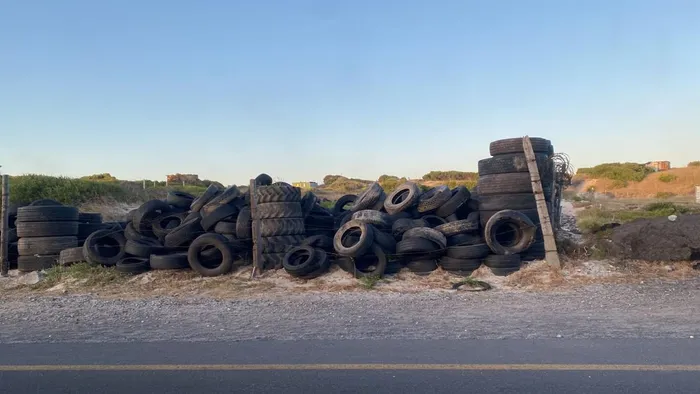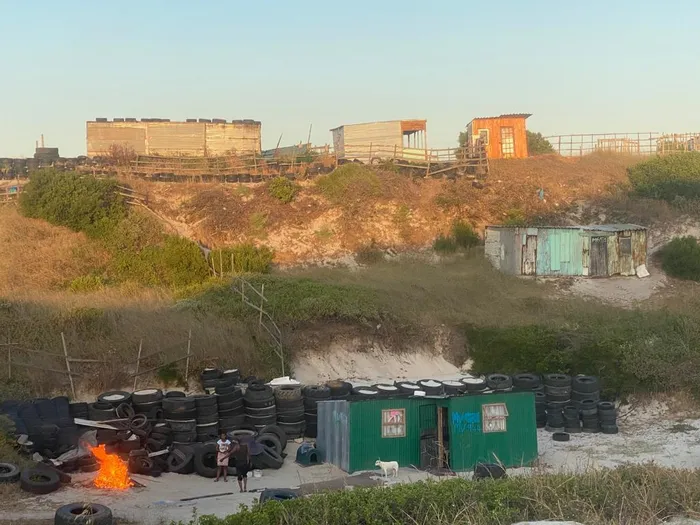Dumped and burned: South Africa's tyres are causing more than just flat tyres

Illegal tyre dumping and burning are rampant in South Africa, posing severe environmental and health risks.
Image: REDISA
Illegal tyre dumping and burning is an environmental health and disaster for South Africa, with toxins from waste tyres leach into the groundwater, contaminating it.
This is according to The Recycling and Economic Development Initiative of South Africa (REDISA) who is receiving increasing reports of illegal waste tyre dumping and burning across South Africa.
They said apart from the severe toxic pollution caused by these practices, they are proof of how disastrously waste tyres are mismanaged in South Africa.
REDISA said they have written to members of the Portfolio Committee for Forestry, Fisheries and the Environment, asking them for urgent action on a new waste tyre management plan to help avert a full blown environmental and health crisis.
Dr Chris Crozier, from REDISA explained their plight.
"A staggering number of waste tyres are produced in our country, equivalent to some 70,000 passenger tyres every day" said Crozier.
"Due to the absence of oversight and management, unregulated operators are seriously undermining environmental compliance and public health.
"Tyre burning releases toxic pollutants which are linked to cancer, respiratory illnesses and birth defects.
“Collectors cannot move them, as they have not been employed by the Waste Management Bureau, which falls under the Department of Forestry, Fisheries and the Environment. A number of collectors say they have not worked this year and are increasingly unable to feed their families.”

Illegal tyre dumping and burning is an environmental health and disaster for South Africa.
Image: REDISA
He added that dangerously overfull waste tyre depots are a major cause of the problem.
“Certain types of waste tyres are also burnt to access scrap metal. Furthermore, some communities are desperately burning waste tyres at nighttime for warmth during winter,” Dr Crozier stated.
REDISA said they received complaints of illegal tyre burning outside of Gqeberha, as well as near communities like Freedom Park in Soweto.
They explained that often tyre dumping happens along Baden Powell Road in Cape Town, to name just one site.
They said the pollution also has wider environmental implications, as illustrated by tyres clogging a riverbed along Philadelphia Road, near Malmesbury.
“The situation is more than a governance failure: it is a missed opportunity for economic growth and job creation through recycling,” REDISA said.
“Research has shown that if there were a functional waste management plan in place applied to just 13 of South Africa’s 38 waste streams, our GDP growth could rise by 1.5 percentage points.
They explained that from 2013 to 2017, REDISA ran a nationally integrated tyre management plan and it collected and diverted over 306 000 tonnes of waste tyres, created 3 000 jobs, and offset 59 000 tonnes of CO₂ emissions.
They added that small business entrepreneurs in the waste economy are speaking up but want to remain anonymous.
They fear being identified will result in not receiving contracts from the government in the future.
A transporter who was part of a family business built under the REDISA model said: “Trucks are being turned away at the depots. There are secret dumping sites. Tyres are also being dumped in sports fields.”
Another micro-collector shared: “It does affect our community because everybody knows there is a health concern around tyres.” She and a group of other micro-collectors are desperate for collection work.
Last week, REDISA wrote to members of the Portfolio Committee for Forestry, Fisheries and the Environment, asking them for urgent action on a new Industry Waste Tyre Management Program, after the Minister of Forestry, Fisheries and the Environment, Dr Dion George, withdrew the current plan in June.
The Minister cited concerns regarding the plan's alignment with sector realities and policy intent as reasons for the withdrawal.
Get your news on the go, click here to join the Cape Argus News WhatsApp channel.
Cape Argus